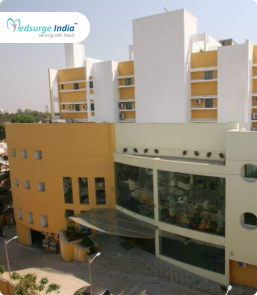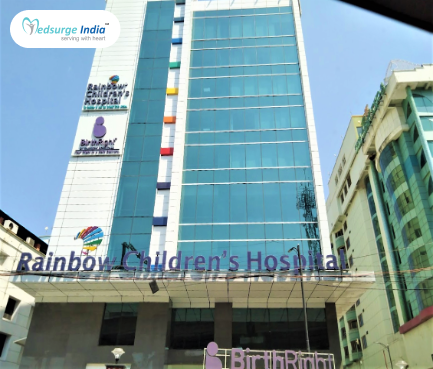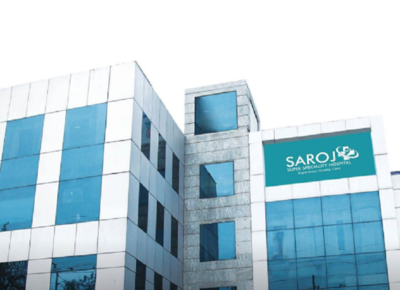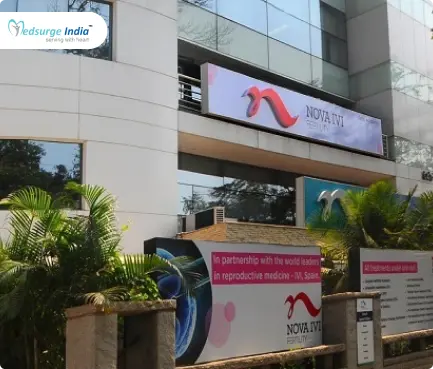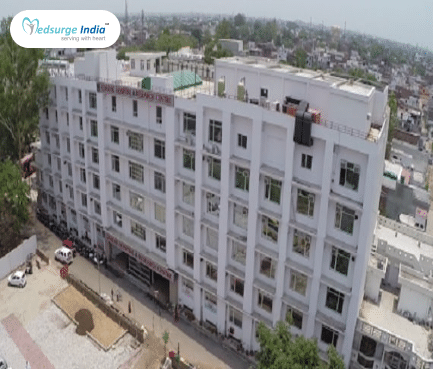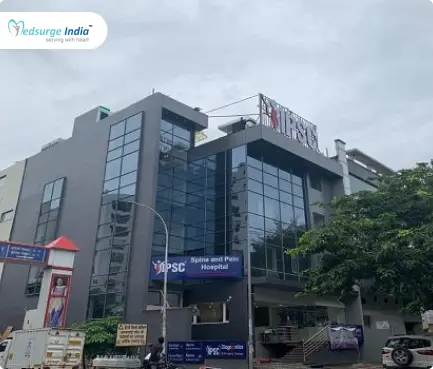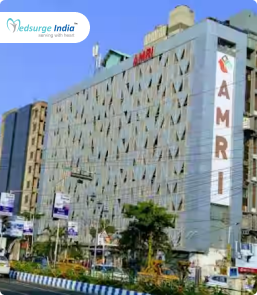
Retrograde intrarenal surgery (RIRS) is a surgical technique utilized for kidney treatment, employing a fiberoptic endoscope for visualization. This instrument allows for the use of a Holmium laser fiber to effectively address kidney stones.
Here on this page, we will explore the cost of RIRS surgery in Turkey, the factors that affect the cost, and how it is done.
What is RIRS Surgery?
RIRS, which stands for Retrograde Intrarenal Surgery, is a minimally invasive technique designed for the removal of kidney stones. In contrast to conventional open surgery, RIRS employs a flexible ureteroscope to reach the kidney via the urinary tract, thereby avoiding the necessity for external cuts. This approach promotes faster recovery and reduces post-operative discomfort.
RIRS Surgery Cost in Turkey
RIRS surgery cost in Turkey ranges from $2,600 to $3,630 but can vary based on factors like location, hospital, and doctor’s fees. It is recommended to consult your coordinator or the hospital to obtain a precise estimate and clarify what the costs encompass.
Kidney stones can cause severe pain and significantly disrupt daily activities. Fortunately, advancements in medicine have introduced several treatment alternatives, with RIRS (Retrograde Intrarenal Surgery) being a notable option.
When is RIRS Surgery Recommended?
Retrograde Intrarenal Surgery (RIRS) is a minimally invasive technique designed primarily for the treatment of kidney stones. It is particularly suitable for patients with stones that are either too large or irregularly shaped to be expelled naturally, as well as for those who have not had success with non-surgical options such as Extracorporeal Shock Wave Lithotripsy (ESWL). Furthermore, RIRS can effectively manage kidney stones in individuals with anatomical variations that hinder the success of other treatment methods.
The procedure utilizes a flexible ureteroscope, which is introduced through the urethra and bladder, allowing access to the kidney without the need for external incisions. In cases where the stone is too large to be removed intact, laser lithotripsy is employed to break it into smaller fragments that can either be extracted or passed naturally. After the procedure, a temporary stent may be placed in the ureter to facilitate proper urine flow during the healing process.
RIRS is particularly advantageous for patients seeking a less invasive option, as it typically results in a quicker recovery and a reduced risk of complications compared to conventional surgical approaches. If you experience recurrent kidney stones or have not responded to previous treatments, your healthcare provider may recommend this procedure.
Factors That Can Affect RIRS Surgery Cost in Turkey
The expenses associated with Retrograde Intrarenal Surgery (RIRS) in Turkey can fluctuate considerably based on various factors. Recognizing these aspects can provide you with a better understanding of the financial implications:
Location: The cost of medical procedures, including RIRS, can vary significantly depending on the geographical area where the surgery is conducted. Facilities in urban centers or developed regions often have higher prices due to increased operational costs.
Type of Facility: The choice between a private hospital and a public healthcare facility can also affect the overall expenses for RIRS surgery cost in Turkey. Private hospitals typically charge more due to superior amenities and advanced technology, while public institutions may offer more budget-friendly alternatives.
Surgeon’s Qualifications: The qualifications and experience of the surgeon performing the RIRS can influence the cost of RIRS surgery in Turkey. Surgeons with extensive experience or specialization in urological surgeries may command higher fees for their expertise.
Procedure Complexity: The intricacy of your specific case can also impact pricing. If your RIRS involves complications or requires a longer surgical duration, the costs may rise due to the need for additional resources.
Pre- and Post-operative Expenses: Costs related to pre-surgical consultations, diagnostic tests (such as imaging or laboratory work), and follow-up appointments after surgery can contribute to the total expense of RIRS surgery cost in Turkey. Some hospitals may package these services together, while others may bill them separately.
Anesthesia Type: The kind of anesthesia used during the procedure (local versus general) can influence the cost of RIRS surgery in Turkey. General anesthesia, often necessary for more complicated cases, is usually more expensive than local anesthesia.
Length of Hospital Stay: Although RIRS is generally a minimally invasive procedure, some patients may require a hospital stay for observation, which can increase the overall treatment of RIRS surgery cost in Turkey.
What are the Different Types of Diagnosis Done Before an RIRS Surgery?
Prior to conducting RIRS Surgery, surgeons advise patients to undergo specific diagnostic tests. These tests are essential for evaluating various factors such as the size and position of the stones, any underlying medical conditions, and the patient’s general health status. It is important for all patients to bring their test results on the day of the surgery. The typical diagnostic tests performed before RIRS Surgery include:
- Imaging tests (KUB X-ray, abdominal ultrasound, MRI)
- Blood urea nitrogen (BUN) test
- Blood test
- Urinalysis.
How is RIRS Surgery Performed?
For the treatment of complex kidney stones, a specialized surgical technique known as RIRS is utilized.
Before the procedure, the patient receives either spinal or general anesthesia to ensure a pain-free experience. The urologist then conducts imaging tests to accurately identify the stone’s location. Following this, a ureteroscope, a medical instrument, is used to inspect the ureteral channel.
The surgeon inserts an endoscope, a long and flexible tube, through the urethra to reach the kidney’s urine-collecting area. This process is guided by X-ray imaging, which allows the surgical team to view real-time images on an external screen, enhancing the precision of the operation.
The endoscope is then carefully maneuvered retrograde towards the kidneys to find the stones. Once identified, a laser probe is employed to fragment the stones into smaller pieces. These fragments are collected in a ‘stone basket’ and removed through the same pathway.
To control bleeding, the surgeon may either grasp the stones with forceps or utilize laser beams to reduce the stones to smaller sizes. A specialized holmium laser is used to effectively break down or reposition kidney stones without causing damage to surrounding tissues. Finally, urine is used to flush out the body, helping to eliminate the stone fragments.
Also Read:- RIRS Surgery Cost in India
Tips for a Successful Recovery
- Maintain Hydration: Ensure you consume adequate water to aid in kidney function.
- Adhere to Dietary Guidelines: Steer clear of foods that may lead to the formation of stones.
- Use Medications as Directed: Finish the entire course of prescribed antibiotics and pain relief medications.
- Participate in Follow-Up Visits: Consistent check-ups are essential for effective recovery and to avoid potential complications.
Get affordable RIRS Surgery At Medsurge India
Medsurge India partners with leading urologists in Turkey to provide an effective and budget-friendly approach to kidney stone treatment. With vast expertise, Medsurge India guarantees that patients receive exceptional care without facing high expenses.
At Medsurge India, the Retrograde Intrarenal Surgery (RIRS) in Turkey is tailored to your needs to ensure optimal comfort and swift recovery. This innovative procedure employs advanced technologies such as flexible ureteroscopy and laser lithotripsy to disintegrate and extract kidney stones without the need for significant incisions. Medsurge India prioritizes the unique needs of each patient, delivering both precision and affordability.
If you are experiencing recurrent kidney stones or looking for a cost-effective alternative to conventional surgical methods, Medsurge India is dedicated to providing expert care that fits your financial plan. With clear pricing, thorough care, and modern facilities, Medsurge India makes high-quality urological treatment accessible to all. Don’t let financial constraints hinder your access to superior care—opt for Medsurge India for expert and affordable solutions for kidney stones.
Get Free Cost Estimation
The Most Important Frequently Asked Questions
Q: What is the purpose of RIRS?
A: Retrograde Intrarenal Surgery (RIRS) is performed to remove kidney stones using a retrograde ureteroscopic approach. During this procedure, surgeons create a pathway to the kidneys via the urethra, and it is considered minimally invasive as it does not involve any incisions or external openings.
Q: Is surgical intervention required for a kidney stone that is 7 mm in size?
A: Stones measuring between 5 to 7 mm (larger than a pencil eraser but smaller than a green pea) have a 50% chance of passing naturally. However, stones larger than 7 mm rarely pass without surgical intervention. If kidney stones are identified and treated in a timely manner, there is usually minimal long-term damage.
Q: What is the RIRS procedure?
A: Retrograde intrarenal surgery (RIRS) is a surgical method for addressing kidney issues using a flexible ureteroscope. In this procedure, the urethra serves as the entry point to insert the scope into the bladder, while the ureter allows access to the kidney’s urine-collecting area.
Q: How long should one rest after RIRS?
A: After undergoing RIRS surgery, recovery generally spans 24 to 48 hours, during which complete rest is recommended. It is important for patients to stay well-hydrated to support urine production.
Top Hospitals for RIRS Surgery in Turkey
Top Doctors for Urology Treatment
Dr. Murat Beksan
Consultant
Experience: 12 years of experience
Private Millet Hospital
Istanbul, Turkey
Dr. Mehmet Erkan Erbay
Professor
Experience: 28 years of experience
Okan University Hospital, Tuzla
Istanbul, Turkey
Dr. Veli Simsek
Senior Consultant
Experience: 27 years of experience
Kolan International Hospital, Istanbul
Istanbul, Turkey
Dr. Sercan Yilmaz
Consultant
Experience: 15 years of experience
Kolan International Hospital, Istanbul
Istanbul, Turkey
Dr. Ahmet Musaoglu
Senior Consultant
Experience: 18 years of experience
American Hospital, Istanbul
Istanbul, Turkey
M.D. Burak Koçak
Professor
Experience: 15 years of experience
KOC University Hospital, Istanbul
Istanbul, Turkey
Dr. Zeynep Yılmaz
Consultant
Experience: 20 years of experience
Anadolu Medical Center, Kocaeli, Istanbul
Istanbul, Turkey
M.D. Emre Arpali
Professor
Experience: 10 years of experience
KOC University Hospital, Istanbul
Istanbul, Turkey
Dr. Abdulkadir Hills
Consultant
Experience: 14 years of experience
Kolan International Hospital, Istanbul
Istanbul, Turkey
Dr. Turhan Caskurlu
Professor
Experience: 28 years of experience
Memorial Hospitals Group, İstanbul
Istanbul, Turkey
Dr. Mehmet Remzi Erdem
Consultant
Experience: 11 years of experience
Private Duygu Hospital
Istanbul, Turkey
Prof. Dr. Remzi Saglam
Senior Consultant
Experience: 42 years of experience
Medicana International Ankara
Istanbul, Turkey
Dr. Omer Aytac
Senior Consultant
Experience: 20 years of experience
Kolan International Hospital, Istanbul
Istanbul, Turkey
Dr. Engin Bazmanoglu
Principal Consultant
Experience: 22 years of experience
American Hospital, Istanbul
Istanbul, Turkey
Dr. Murat Arslan
Professor
Experience: 15 years of experience
Okan University Hospital, Tuzla
Istanbul, Turkey
Dr. Sefik Citci
Consultant
Experience: 20 years of experience
Kolan International Hospital, Istanbul
Istanbul, Turkey
Dr. Suheyb Suleyman
Consultant
Experience: 20 years of experience
Derindere Hospital, Istanbul
Istanbul, Turkey
Dr. Murat Bagisgil
Consultant
Experience: 19 years of experience
Medical Park Group, Istanbul
Istanbul, Turkey
Prof. Dr. Fatih Kurtulus
Professor
Experience: 24 years of experience
Medistanbul Hospital, Istanbul
Istanbul, Turkey




